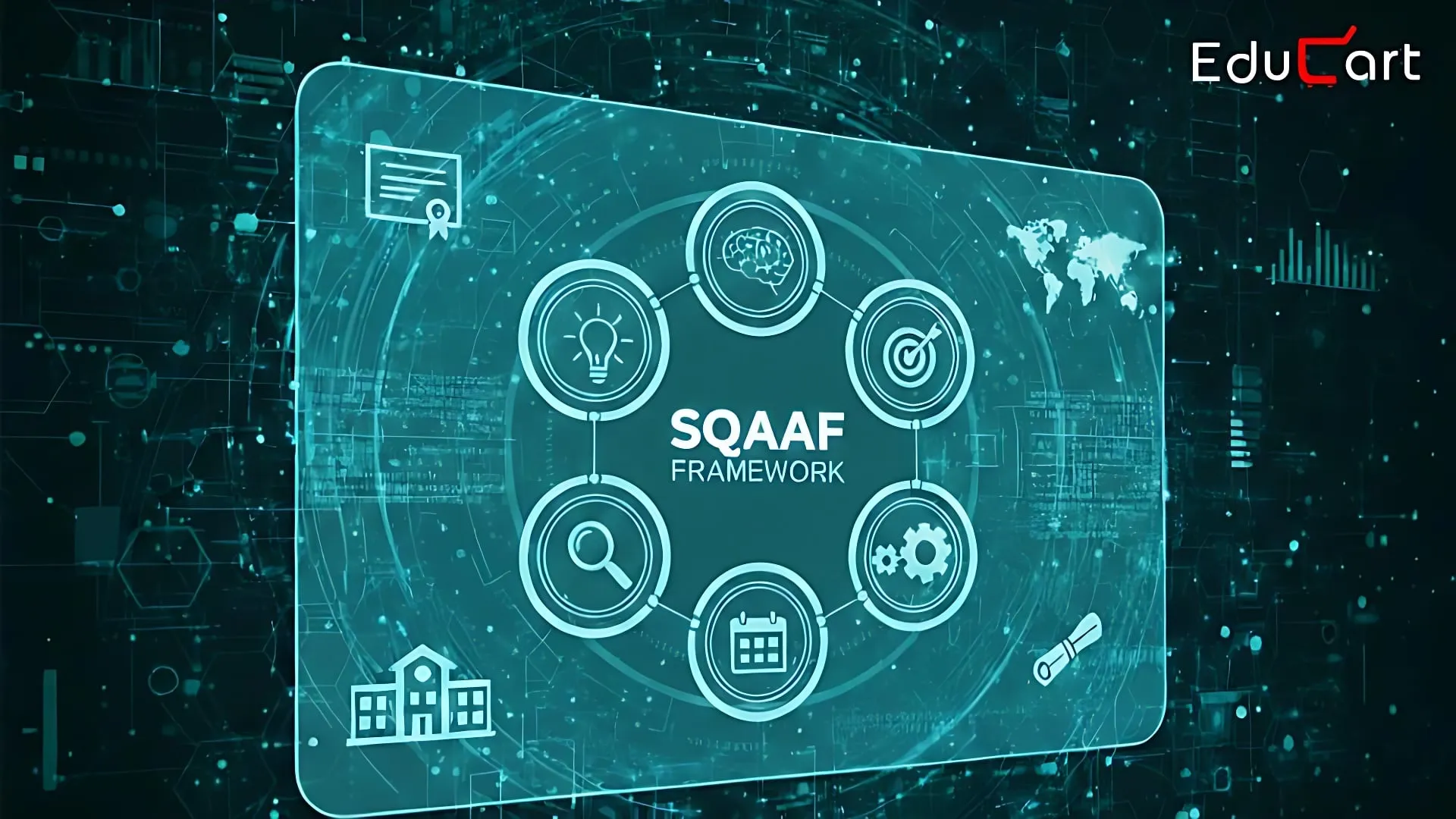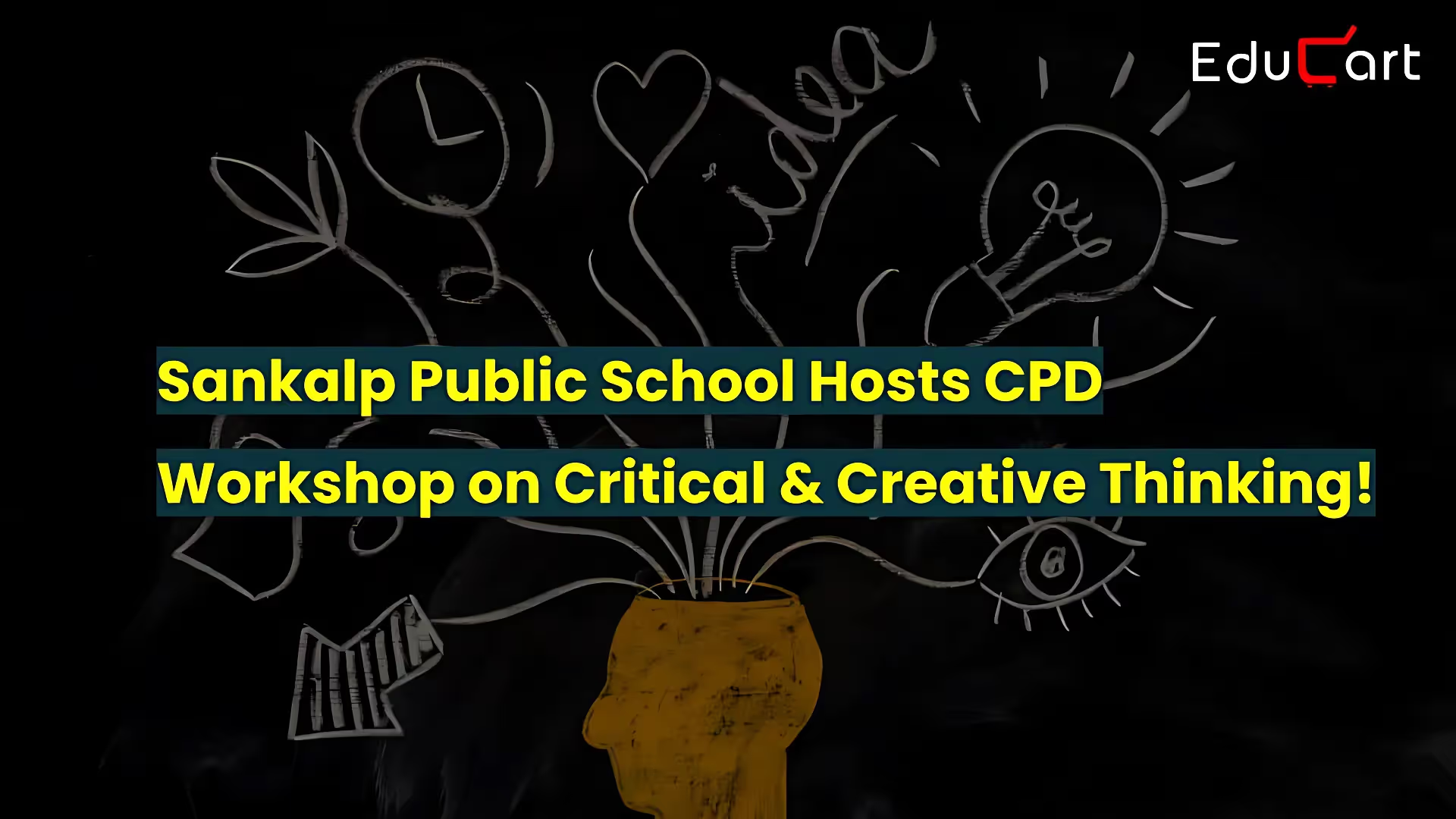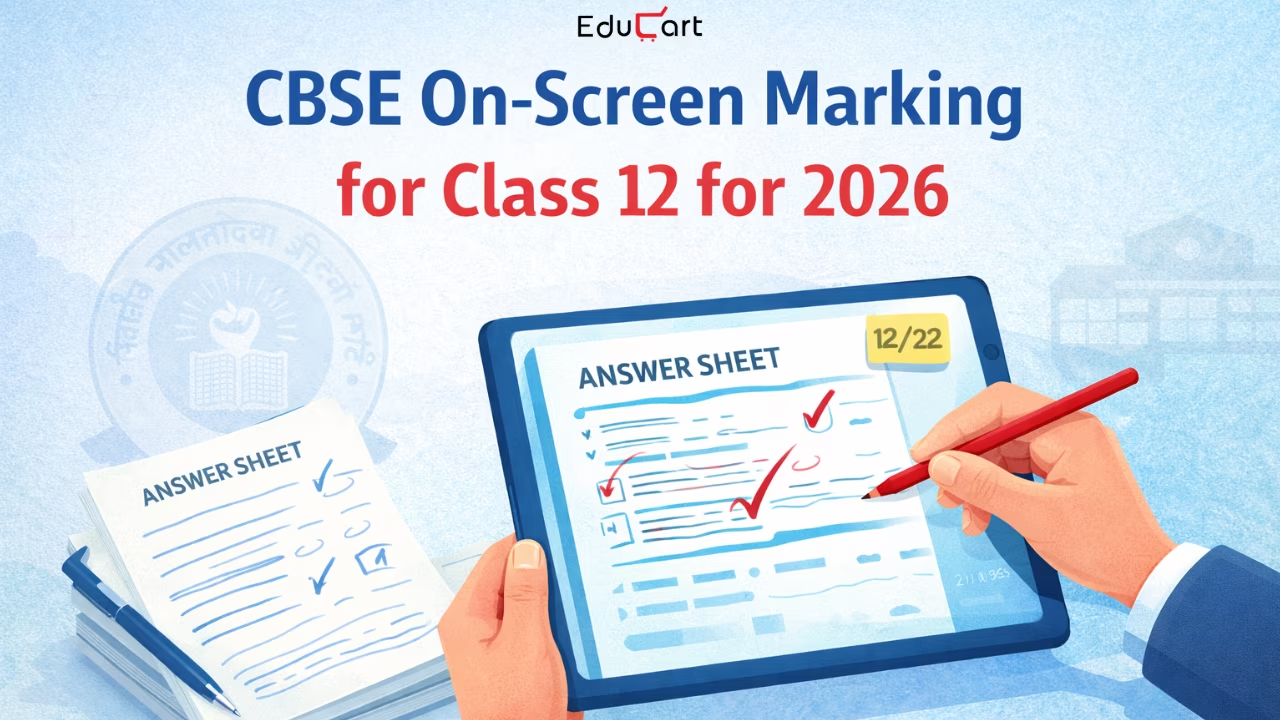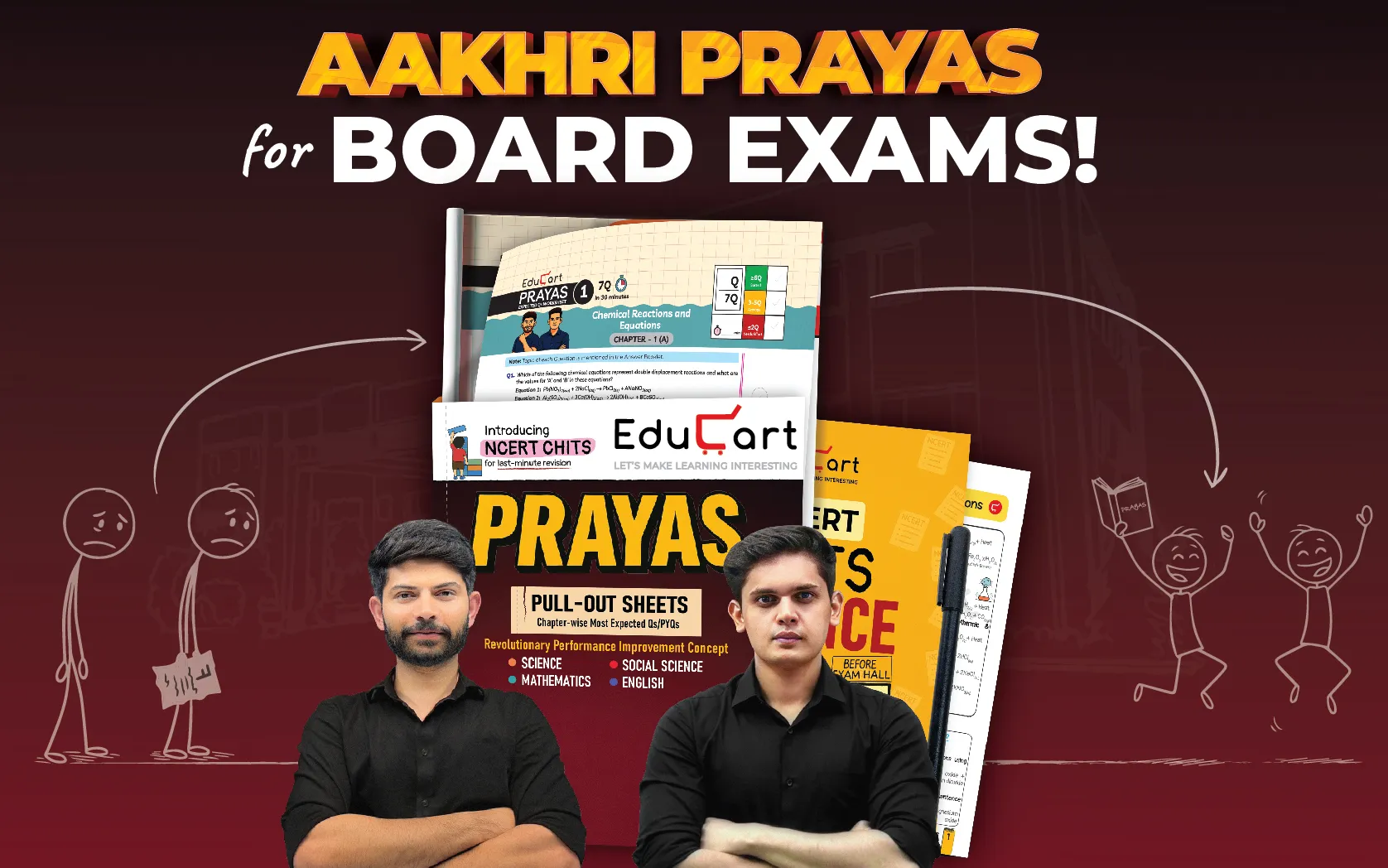Competency-based Education and Class 10 and 12 Term 1 Board Exams––How are they Connected?
With the introduction of NEP 2020, CBSE aimed to transform the education system from typical rote memorisation to 100% competency-based learning. This approach was to be adopted for learning as well as assessment and focus on developing high order skills (analytical, thinking and conceptual) in students.
Earlier, the Class 10 and 12 Board exams included 30% Competency-based Questions, which now they have changed to 100%.
So now, as the Term 1 Board exams are approaching, some questions are arising regarding this among the students and teachers. One important is:
“How has CBSE used CBE in developing the Term 1 MCQ-based Sample and Question Papers?”
With the Circular Acad - 88/2021 released on 29 September 2021, CBSE invited teachers to webinars on Competency-based Question Development in detail for four main subjects - Science, Mathematics, Social Science and English. The panelists of each webinar covered how the questions are formed around the Learning Outcomes and hence, the Competency-based Education System.

We attended these webinars to deduce a conclusion on how CBSE Term 1 Board Exams will use CBE to develop MCQs.
There was a lot covered in these webinars, starting with the basic parameters that should be kept in mind to develop MCQs for the coming Term 1 Board exams.
- Cognitive complexity
- Content quality
- Meaningfulness
- Language appropriateness
- Transfer and generalizability
- Fairness
- Reliability
Experts at CBSE believe that as long as any assessment item (activities and questions to test the students’ knowledge) is based on the learning outcomes and urges the students to use their analytical, thinking and cognitive skills; is is promoting competency-based learning. In addition, the above parameters are trusted to be necessary for the items to be valid and reliable.
The LOs for every subject are set according to Bloom's Taxonomy. It covers 7 competencies - Remember, Understand, Apply, Analyse, Evaluate and Create that the CBSE Subject Matter Experts have used to develop the MCQs for Term 1 Sample Papers and Board Question Papers.

Now, let's take a deep dive into how different types of questions in every subject are developed as per CBE.
Science - held on October 5th, 2021
Stand Alone MCQs
- Even though the concept of a stand alone MCQ is supposed to be direct, it can be developed as per the CBE by justifying a specific learning outcome.
For Example:
In the screenshot given below, the question on the top is direct and it only demands the students to state the facts and use their rote memorisation skills, with no connection to the learning outcome.
On the other hand, the question below will persuade them to use the competencies to classify different forms of matter based on their properties, hence, leading them to achieve the learning outcome.
LO: Test if the students know how to classify materials based on their properties.

- Students and teachers believe that a competency-based MCQ is the one that involves a case study, images, data, etc., followed by questions but according to the Science webinar panelists, this is a myth.
For Example:
The following question from Class 10 Science is asked to explain how a Stand Alone technical process or diagram will be given to test the students’ analytical and critical thinking skills. This is referred to as testing of competency.

Assertion/ Reasoning MCQs
- MCQs based on assertions and reasoning test more complicated aspects/ skills that involve a higher level of understanding in students. They help in judging the capacity of the students to reason.
- So, these questions automatically help in assessing the students’ competencies.
For Example:
In these questions, the students have to apply Bloom's Taxonomy, to use both low and high orders skills.

Case-based MCQs
- As the name suggests, case-based MCQs can include anything from images, a table or diagram to case studies, passages and reports. The students must read, analyse and evaluate the information to find out the correct answer.
- Therefore, case-based MCQs are said to be perfect for assessing cross-curricular competencies, while inhibiting rote memorisation.
For Example:
In the case-based MCQs in the screenshots below, it is clear that the students will have to combine their learnt concepts (low order skill) with their analytical and critical thinking skills (high order skills) with the help of the illustrations.


Mathematics - held on October 6th, 2021
Stand Alone MCQs
When it comes to Mathematics, students and teachers (and even most publishers) have this perception that the questions can only be direct that are based on calculations, postulates, theorems, etc. According to the British Council resources and CBE guidelines, this is again a myth.
- Competency-based MCQs in Math can be challenging to develop but they can also be used to inhibit rote memorization by encouraging the students to reflect and evaluate the concepts used in an MCQ.
For Example:
Given below is a screenshot with a question on the top that tests rote memorisation in students. However, the question below demands the students to think about the right answer based on a situation first and then apply the concepts they have learnt, hence, using their high order thinking skills.

Complex MCQs
- Some easy and theoretical concepts can also be used to make complex MCQs.
For Example:
The purpose of both the questions below is the same but students will solve the left one using Bloom’s Taxonomy whereas the right one can be solved with rote memorisation skills. This is what is to be avoided.

Assertion/ Reason MCQs
- Again, A/ R MCQs are used to test if the students are able to follow a process of reasoning with the question and concept learnt to find out the correct answer or not. So, it is important for the questions to stimulate thinking, logical application and analysis.
For Example:
This question is going to urge the students to imagine (understand and apply) themselves in both the statements using their high order skills.

Case-based MCQs
- Since Math is a subject in which students are used to and might look for a direct process to answer, it is essential that the Case Study-based MCQs are engaging enough. This can be done by making the context relatable and authentic but unfamiliar to also test their competencies.
For Example:
The following case-based MCQs are authentic, which means they are based on indisputable, realistic facts that relate to the group text.

The panelists also provided a checklist to develop MCQs on Competency-based Education. Teachers can always use this checklist to make practice question papers for pre-boards and unit tests.

Social Science - held on October 7th, 2021
The Social Science webinar began with a brief on the key elements of a Question Paper based on CBE and why it should be set according to Bloom’s Taxonomy. With that, let’s take a look at how it sets the development of Social Science questions in motion.

- The beginning two steps of the funnel (Bloom’s Taxonomy) can be used to test rote memorisation (low order skills) in students and as the questions become more complex, they can instil learning objectives, competencies and high order skills in the MCQs.
For Example:
The question given below is a direct question based on a lower level (remembering) that only demands the students to remember the concepts they have learnt.

In contrast, if the question (like the one given below) is based on a higher level (evaluation), it will ask the students to think out of the box, using competencies like analyse, evaluate and create.

- So, the questions should always have a mix of all the levels of Bloom’s taxonomy whether it is analysis, application or high order thinking skills, etc. The questions must test various elements of competencies in the students.
Map-based MCQs
- A question based on a chapter with map-related concepts can ask the students to mark a place on the map and choose an option accordingly.
- However, a better way to develop a map-based MCQ in respect to CBE is by providing four different locations and asking the students to find out the correct one. For this, the students will have to read all the four options and use the process of inference to come to a conclusion.
English - held on October 8th, 2021
Reading Comprehension
- MCQs in reading comprehension can have diagnostic tools that can test misconceptions and errors, inferential skills, understanding process, etc. in students all leading to assessing how good their reading skills are.
For Example:
In a survey question given below, students have chosen wrong answers on the basis of rote memorization, which could have been avoided if they had read the supporting instances more carefully and then answered the questions.

Writing Skills MCQs
- As in other subjects, MCQs based on Writing Skills can be considered as complex MCQs of English, which are not only limited to the standard formats, such as subject of letter, beginning statements of a speech, etc. Again, such concepts only test the students' low order skills that do not justify CBE.
For Example:
Questions like the one given below warrants that the students will be using their understanding of how a subject of the letter should be written, instead of using words they have learnt by heart.

Assertion/ Reasoning MCQs
- As stated in the webinar, A/ R MCQs are most suitable to test Literature concepts, especially for the non-fiction chapters where reasoning plays a good role.
For Example:
These types of MCQs allow the students to identify which statements are correct and how they are connected with each other, using their inferential and analytical skills.

Conclusion
Essentially, each webinar had the same concept of Bloom’s Taxonomy to help teachers set their practice question papers and the same concepts of question development and analysis is applied on all the subjects of Class 12.
The panelists have busted a lot of myths regarding new MCQ types for Term 1 Board exams, which will allow both students and teachers to stay on track of their preparation in accordance with the Competency-based MCQs.

.svg)










.avif)









%20(1).avif)







.webp)












